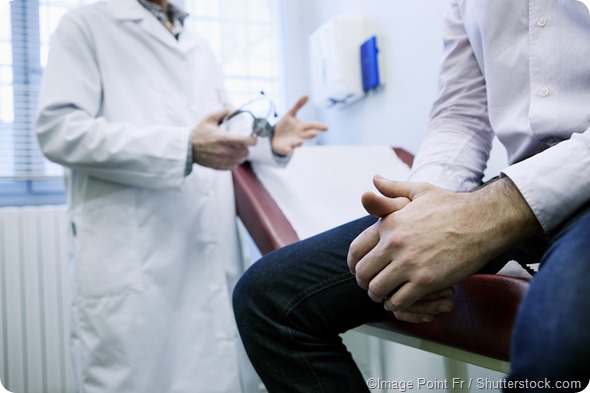For The Latest Medical News, Health News, Research News, COVID-19 News, Pharma News, Glaucoma News, Diabetes News, Herb News, Phytochemical News, Thailand Cannabis News, Cancer News, Doctor News, Thailand Hospital News, Oral Cancer News, Thailand Doctors
Annual health checks are an important part of maintaining good health for men of all ages. While the screening tests for cancers and other health conditions become more important for older men, an annual physical examination and general check-up are recommended for men of all ages.

An annual physical examination is important to address any changes or specific risk factors for disease that men may have.
Obesity is a significant risk factor for many health conditions, including diabetes, cardiovascular disease, and cancer. Assessing the weight of the individual can be done with body mass index (BMI) and waist circumference measurements. There are several diet and lifestyle interventions that may be suggested for individuals who are overweight or obese.
High levels of cholesterol in the blood may be linked to an increased risk of heart disease and cardiovascular events. Blood tests to measure the levels of cholesterol should be recommended for all men over the age of 35 on a regular basis. However, some men may require regular testing from an earlier age if they have other risk factors such as a family history of heart disease, smoking, diabetes, or high blood pressure.
Screening for hypertension should be done at least once in two years for all men, regardless of age. It is estimated that up to a third of all individuals in the United States have high blood pressure, although many are unaware of it as they do not experience symptoms.
Screening for prostate cancer should be carried out annually for men over the age of 50 years with a blood test to measure prostate-specific antigen (PSA) and a digital rectal exam. Men at high risk of the condition, due to family history, may need to begin screening early at 40 or 45 years of age.
Early detection and treatment of colorectal cancer can significantly improve the outcome of patients. Screening tests usually begin for men at the age of 50, although it may be recommended early for men with a family history of the condition.
As up to a third of patients with high levels of glucose in their blood are not aware of their diabetes, screening for the condition can help to detect it and reduce the risk of complications.
Early detection of type 2 diabetes in people who are in the pre-diabetes stage introduces the possibility of making changes to diet and lifestyle before there is a real need for medical treatment. In fact, research has shown that screening for pre-diabetes and implementing healthy changes to diet and exercise can prevent the development of full diabetes.
Males who engage in sexual activities without a condom with anyone other than a long-term, monogamous partner should be advised to be regularly screened for sexually transmitted infections, such as HIV, gonorrhea, syphilis, and chlamydia.
In general, men under the age of 39 should have the following health checks done:
In general, men between the ages of 40 and 49 should have the following health checks performed:
Blood and urinalysis every two years
In general, men over the age of 50 should have the following health checks:
Additionally, all men should be advised to seek medical advice if they experience changes or symptoms that they are worried about.